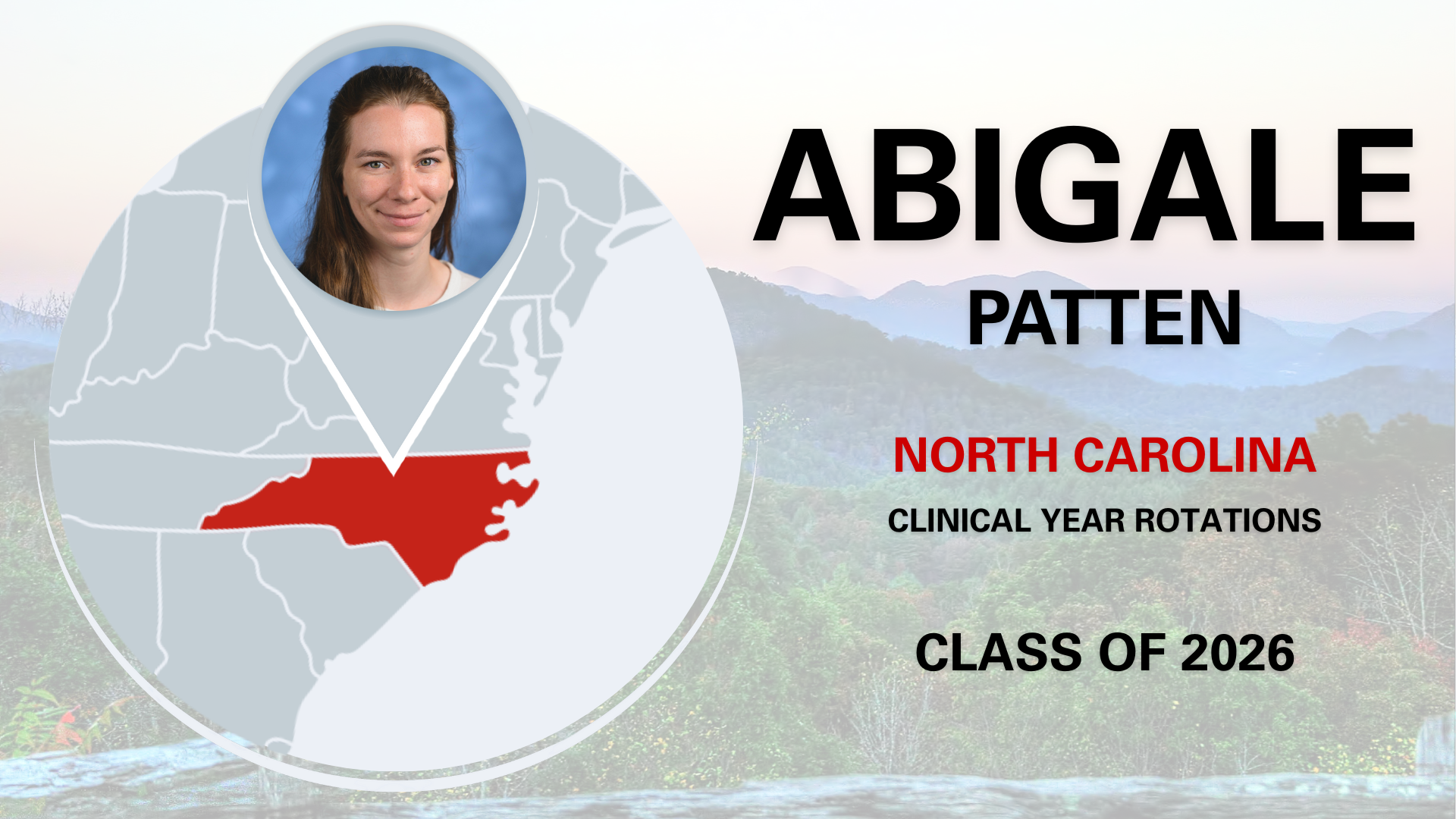NC State Gives Rescue Puppy Specialized Heart Surgery — 13 Years After Foster Mom Had Similar Procedure
Alexis Sullivan feels that a heart-to-heart connection led her to foster Opie, a rescue puppy with pulmonic valve stenosis, and connect him to necessary cardiac surgery at the NC State Veterinary Hospital.

Last year, Alexis Sullivan was sitting in a veterinary clinic with her foster pup, Opie, when her memories swept her back to a human cardiologist’s office in 2011.
Opie’s veterinarian was explaining to her that Opie had a heart murmur, using many terms Sullivan recognized from being diagnosed with a leaky mitral valve over a decade before. Her condition required her to have valve repair surgery and take a break from cheerleading at East Carolina University, but she hadn’t had any issues since. Would 6-week-old Opie be so lucky, she wondered?
Over several more appointments, including a cardiology consultation at the NC State Veterinary Hospital, Opie was diagnosed with pulmonic valve stenosis. The condition involves a narrowing of the pulmonary valve, which pumps blood from the heart into the lungs for oxygenation. If unaddressed, it can lead to heart enlargement and even congestive heart failure, says NC State cardiology resident Dr. Kristy Williams.
Fortunately for Opie, Sullivan had found the right place for the procedure most commonly used to correct the condition, a surgery called a balloon valvuloplasty, or BVP. The NC State Veterinary Hospital’s cardiology service runs a full cardiac catheterization lab equipped with fluoroscopy devices that create a real-time video X-ray of the heart during surgery. This advanced technology ensures better safety and efficacy as surgeons inflate a balloon-like device in the heart to open up the pulmonary valve.
“We have a wonderful board-certified anesthesia team that we work with very closely to conduct these procedures every week,” Williams says. “You have to move quickly to get that balloon up safely across the pulmonary valve, which involves a lot of teamwork and a lot of coordination. We’re very lucky to have such an excellent group at NC State with multiple disciplines working together.”
Opie had his BVP surgery on Dec. 4, 2024, just 12 days shy of the 13th anniversary of Sullivan’s cardiac procedure.
“It definitely brought back memories, but it wasn’t traumatic in any way,” says Sullivan, who took in Opie and his sister Gussie as her first foster dogs through rescue organization Perfectly Imperfect Pups. “I felt like I knew what to expect. I knew this little guy was going to move mountains and be a miracle dog, and that NC State was going to take great care of him.”
By that point, Opie had an even bigger team rooting for him. He had been adopted in November by Nick and Kirstin Hamilton, a Raleigh-area couple who were unfazed by his heart condition and ready to support him through the recovery ahead.
“We hope that, over time, his heart will be able to compensate and remodel. But if it doesn’t, he’ll still live a pretty normal lifespan. When we do these procedures, the hope is that we can help dogs have a better quality of life going forward.” — DR. KRISTY WILLIAMS, NC State cardiology resident
That recovery included keeping the energetic Australian shepherd-husky mix calm for three months of post-operative healing and routinely giving Opie beta blocker medication to relax his blood vessels and regulate his heart rate.
“NC State did a great job explaining things to me and letting us know how things are going to go down the road,” Nick Hamilton says. “Opie’s a smart little guy and knows he’s in a good home. He definitely loves us. He’s such a little cuddle bug.”
During a recheck appointment in March, NC State cardiologists found that Opie still had evidence of a heart murmur. They diagnosed him with infundibular stenosis, a congenital type of valve narrowing that isn’t responsive to BVP surgery due to the valve’s smaller anatomical structure, Williams says.
While the BVP procedure didn’t resolve Opie’s heart condition, it still allows him to live a healthier, more active life as his heart reaches its full size. The relationship that Opie established with NC State’s cardiology service ensures specialists can monitor his cardiac health closely and intervene as needed in the future.
“We hope that, over time, his heart will be able to compensate and remodel,” Williams says. “But if it doesn’t, he’ll still live a pretty normal lifespan. When we do these procedures, the hope is that we can help dogs have a better quality of life going forward.”
Opie is truly “living his best life” in his forever home and plays eagerly with his canine sister Lilly, Nick Hamilton says. The Hamiltons are still in close contact with Sullivan and send her regular Opie updates.
“You’d never know that Opie had a heart condition by the way that he acts,” Nick Hamilton says. “It’s something I know that we’re going to live with and he’s going to live with, but we’re here to help him every step of the way.”
- Categories:


